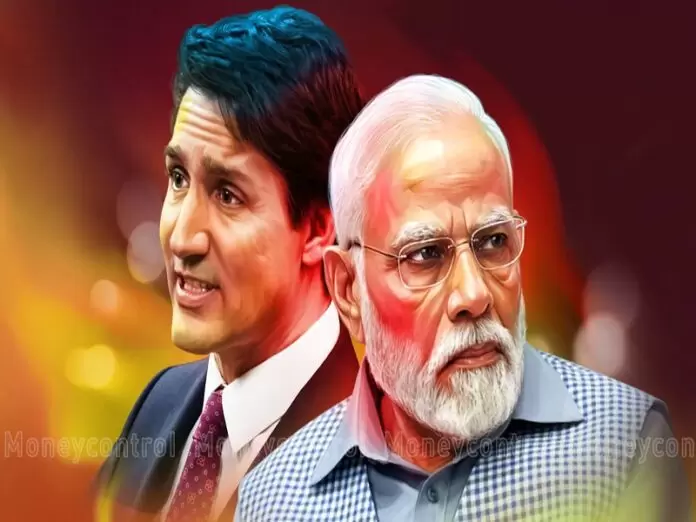Indian-Canadian ties were toxified in late September 2023 after Trudeau accused that country of assassinating a Delhi-designated terrorist-separatist with dual citizenship on its soil earlier that summer. India denied the allegations and briefly suspended visas for Canadian citizens. The US then leveled its own similar accusations against India, which greatly harmed mutual trust, but India has thus far managed this dispute much better than the one with Canada. Here are five background briefings:
* 19 September 2023: “There’s A Lot More To The Indian-Canadian Dispute Than An Alleged Assassination”
* 1 October 2023: “India’s Top Diplomat Shared Some Dark Truths About Canada”
* 23 November 2023: “India’s Honeymoon With The West Might Finally Be Over”
* 2 May 2024: “WaPo’s Indian Assassination Article Is A Shot Across The Bow By American Intelligence Agencies”
* 23 September 2024: “The US Is Playing A Game Of Good Cop, Bad Cop Against India”
The latest development on this front was India expelling six Canadian diplomats, including the High Commissioner, after Trudeau accused the Indian High Commissioner and others of direct involvement in summer 2023’s assassination despite continuing to withhold any evidence in support of this claim. Trudeau subsequently said that Canada received proof about their alleged involvement from the Five Eyes intelligence-sharing alliance that’s led by the US.
The de facto rupturing of Indian-Canadian ties therefore has the US’ fingerprints all over it. The objective is to use Canada as its proxy for impugning India’s international reputation as punishment for refusing to sanction Russia, let alone defiantly strengthening their strategic partnership in the energy, financial, tech, and even Arctic domains over the past two and half years. The US also wants to create the pretext for possible sanctions, likely targeted in this scenario, and embolden the Indian opposition.
The overarching goal is to pressure India to reconsider its independent foreign policy, which is accelerating tri–multipolarity processes in the global systemic transition and thus hastening the end of the US’ unipolar hegemony. American policymakers would prefer a bi-multipolar world order in which their country largely divides the world with China if they can’t successfully cling to the old one. India’s astronomical rise as a Great Power will make that impossible unless they soon put a stop to it first.
The problem though is that going too far with containing India, which includes overthrowing the Bangladeshi government in order to sow the seeds for Ukrainian-like security threats that could coerce India into capitulating, risks India “going rogue” by patching up its problems with China. In that scenario, those two could squeeze the US out of mainland Asia and deal a much quicker deathblow to unipolarity than most multipolar enthusiasts expected, hence why the US is treading very carefully for now at least.
This explains its modus operandi of employing Canada as its cat’s paw since the consequences of its ties with India rupturing over this issue aren’t anywhere near as drastic as if Indo-US ties were to rupture. There might be some trade and immigration disruptions, which haven’t yet happened, but they’d still be manageable. If Indo-US ties ruptured, then that could change the world order as was argued above, but it would entail heavy economic costs to both of them that neither wants to risk at the moment.
From the US’ perspective, it’s better for Canada to take a manageable economic hit for the purpose of impugning India’s international reputation, which its policymakers expect might be enough to get India to finally curtail its independent foreign policy to a degree even if it doesn’t end up dumping Russia. These calculations might be misplaced, however, since India has proven time and again that it’ll double down in defiance whenever it comes under pressure.
There’s only so far that it’ll go, however, since its ties with China remain troubled by their unresolved border dispute and the security dilemma that’s stemmed from it. India doesn’t feel comfortable making unilateral territorial concessions to China in order to enter into a rapprochement, but India also fears the scenario of the US cutting a deal with China behind its back if Indo-US ties further worsen. That’s why it’s done its utmost to handle its Canadian-like dispute with the US as diplomatically as possible.
The ball is therefore in the US’ court when it comes to the future of ties with India. It can either stop this aspect of its punitive policy by eschewing further escalation over this issue, imposed targeted sanctions after recently charging an Indian government employee with an associated crime at the potential cost of scaring India into a rapprochement with China, or go behind India’s back to cut a Sino-US bi-multipolarity deal at its expense instead. The US has yet to decide, but it might wait till after the elections to do so.








